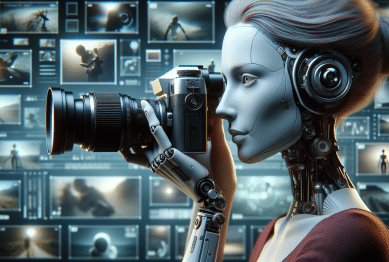In 2025, emerging technologies like artificial intelligence (AI), augmented reality (AR), the Internet of Things (IoT), and blockchain are seamlessly integrating into daily life, transforming how we work, connect, and live. These innovations enhance convenience, efficiency, and personalization, reshaping routines in homes, workplaces, and communities. This article explores key emerging technologies, their applications in everyday life, and practical ways to adopt them in the dynamic landscape of 2025.

Why Emerging Technologies Matter in 2025
Emerging technologies are redefining daily experiences by automating tasks, enhancing connectivity, and offering personalized solutions. In 2025, with global adoption accelerating and digital ecosystems expanding, these technologies empower individuals to navigate modern challenges, from managing smart homes to securing financial transactions. By understanding and leveraging these tools, you can enhance productivity, convenience, and quality of life.
Key Emerging Technologies and Their Daily Applications
Here’s how four major emerging technologies are impacting daily life in 2025:
1. Artificial Intelligence (AI)
AI powers intelligent automation and personalization, enhancing decision-making and efficiency.
- Daily Applications:
- Smart Assistants: AI assistants like Grok 3 manage schedules, answer queries, and control smart home devices via voice commands on platforms like the Grok iOS/Android apps.
- Personalized Recommendations: Streaming services like Netflix use AI to suggest tailored content, while shopping apps recommend products based on preferences.
- Health Monitoring: Wearables like Fitbit leverage AI to analyze sleep or activity patterns, offering personalized wellness insights.
- Real-Life Impact: A busy professional uses an AI assistant to schedule meetings and prioritize tasks, saving time daily.
- Benefit: AI simplifies routines, reduces mental load, and delivers tailored experiences.
2. Augmented Reality (AR)
AR overlays digital information onto the physical world, enhancing learning, shopping, and entertainment.
- Daily Applications:
- Virtual Try-Ons: Retail apps like IKEA Place let users visualize furniture in their homes before buying.
- Education and Training: AR apps like Google Lens provide real-time translations or explain concepts via smartphone overlays.
- Gaming and Social: AR filters on platforms like Snapchat enhance social interactions with immersive effects.
- Real-Life Impact: A homeowner uses AR to test furniture layouts, ensuring perfect purchases without returns.
- Benefit: AR bridges digital and physical worlds, improving decision-making and engagement.
3. Internet of Things (IoT)
IoT connects devices to create smart, responsive environments, from homes to cities.
- Daily Applications:
- Smart Homes: Devices like Nest Thermostats adjust temperatures based on habits, while smart locks enhance security.
- Health and Fitness: IoT wearables track vitals and sync data with health apps for real-time monitoring.
- Smart Cities: IoT sensors optimize traffic flow or monitor air quality in urban areas.
- Real-Life Impact: A family uses a smart home hub to automate lighting and heating, reducing energy costs.
- Benefit: IoT enhances convenience, efficiency, and sustainability in daily environments.
4. Blockchain
Blockchain ensures secure, transparent transactions and data management, impacting finance and beyond.
- Daily Applications:
- Digital Payments: Cryptocurrency wallets like Coinbase enable secure, decentralized transactions for everyday purchases.
- Supply Chain Transparency: Blockchain apps track product origins, ensuring authenticity for items like groceries or luxury goods.
- Identity Verification: Blockchain-based IDs secure personal data for online services or travel.
- Real-Life Impact: A consumer verifies the authenticity of organic produce using a blockchain app, ensuring trust.
- Benefit: Blockchain enhances security and trust in daily transactions and data sharing.
Practical Strategies to Integrate Emerging Technologies into Daily Life
Here’s how to adopt these technologies effectively in your routine:
1. Start with Accessible Tools
Begin with user-friendly technologies that align with your daily needs.
- How to Do It: Download AI apps like Grok 3 for task management, try AR shopping apps like Amazon AR View, or install IoT devices like smart plugs.
- Why It Helps: Accessible tools require minimal learning, delivering immediate benefits.
- Tip: Start with one technology, like a smart speaker, to build familiarity.
2. Leverage Free or Low-Cost Platforms
Use affordable or free apps and devices to explore emerging technologies.
- How to Do It: Try free AI tools like Grammarly for writing, AR apps like Google Lens, or blockchain wallets like MetaMask for small transactions.
- Why It Helps: Low-cost options reduce financial risk while testing technology’s value.
- Tip: Explore free trials on platforms like Fundrise (for blockchain-based real estate) to assess fit.
3. Create a Smart Home Ecosystem
Integrate IoT devices to automate and optimize your home environment.
- How to Do It: Set up a smart hub like Google Nest to connect devices (e.g., lights, thermostats) and control them via apps or voice commands.
- Why It Helps: A connected home saves time and energy, enhancing daily comfort.
- Tip: Start with one IoT device, like a smart bulb, and expand gradually.
4. Stay Informed Through Communities
Join online forums or social platforms to learn about new technologies and their applications.
- How to Do It: Follow tech discussions on X, join LinkedIn groups, or explore Reddit communities like r/Technology for user insights and updates.
- Why It Helps: Community knowledge helps you stay ahead of trends and avoid pitfalls.
- Tip: Engage with one tech community weekly to discover practical tips.
5. Experiment and Evaluate Monthly
Spend 15–20 minutes monthly assessing how technologies impact your daily life.
- How to Do It: Test a new app or device each month, noting improvements in efficiency or convenience, and adjust usage based on results.
- Why It Helps: Regular evaluation ensures you adopt technologies that align with your needs.
- Tip: Use a journal or app like Notion to track technology experiments and outcomes.
Sample Routine for Integrating Emerging Technologies
Here’s a routine to incorporate emerging technologies into your daily life:
- Daily:
- Morning (5 minutes): Use an AI assistant to plan your day or check IoT device settings (e.g., thermostat).
- Evening (5 minutes): Experiment with an AR app for shopping or learning, noting its utility.
- Weekly:
- Sunday (15 minutes): Research one new technology (e.g., blockchain wallets) or join a tech discussion on X.
- Monthly:
- First Sunday (20 minutes): Evaluate technology usage, like AI app efficiency or IoT energy savings.
- Quarterly:
- First Sunday (30 minutes): Explore advanced features or new devices to enhance your tech ecosystem.
Overcoming Common Challenges with Emerging Technologies
- Challenge: Overwhelm from complex tools.
Solution: Start with user-friendly apps and focus on one technology at a time. - Challenge: Privacy or security concerns.
Solution: Choose reputable platforms with strong encryption (e.g., blockchain wallets or HIPAA-compliant AI apps). - Challenge: High adoption costs.
Solution: Opt for free trials or low-cost devices like smart plugs to test benefits.
Tools to Support Technology Integration
- AI: Grok 3 (task management), Grammarly (writing), Fitbit (health insights).
- AR: Google Lens (education), IKEA Place (shopping), Snapchat (social filters).
- IoT: Google Nest (smart home hub), Philips Hue (smart lighting), Fitbit (health tracking).
- Blockchain: Coinbase (crypto wallet), MetaMask (decentralized transactions).
- Learning: X, LinkedIn, or Reddit for tech communities and insights.
The Bigger Picture: Emerging Technologies in 2025
In 2025, emerging technologies like AI, AR, IoT, and blockchain are woven into daily life, enhancing productivity, connectivity, and security. From smart homes to secure transactions, these tools empower individuals to navigate a tech-driven world with ease. By adopting them strategically, you can stay ahead in an increasingly digital landscape, improving both personal and professional experiences.
Conclusion: Embrace Emerging Technologies for a Smarter Life
Emerging technologies transform daily life by automating tasks, personalizing experiences, and enhancing security. Start with accessible tools, build a smart home, and stay informed, reviewing progress monthly to optimize adoption. In 2025’s connected world, these strategies position you to thrive with technology. Begin today, and shape a smarter, more efficient future.
References:
CNET. (2025). How Smart Homes Are Changing with IoT. https://www.cnet.com/home/smart-home/how-smart-homes-changing-iot-2025/
Forbes. (2025). How Emerging Technologies Are Shaping Daily Life. https://www.forbes.com/sites/forbestechcouncil/2025/06/20/emerging-technologies-shaping-daily-life/
TechCrunch. (2025). The Impact of AI and IoT on Everyday Living. https://techcrunch.com/2025/05/impact-ai-iot-everyday-living
Wired. (2025). AR and Blockchain in Daily Routines. https://www.wired.com/story/ar-blockchain-daily-routines-2025
MIT Technology Review. (2025). Emerging Tech for the Future of Daily Life. https://www.technologyreview.com/2025/emerging-tech-future-daily-life









